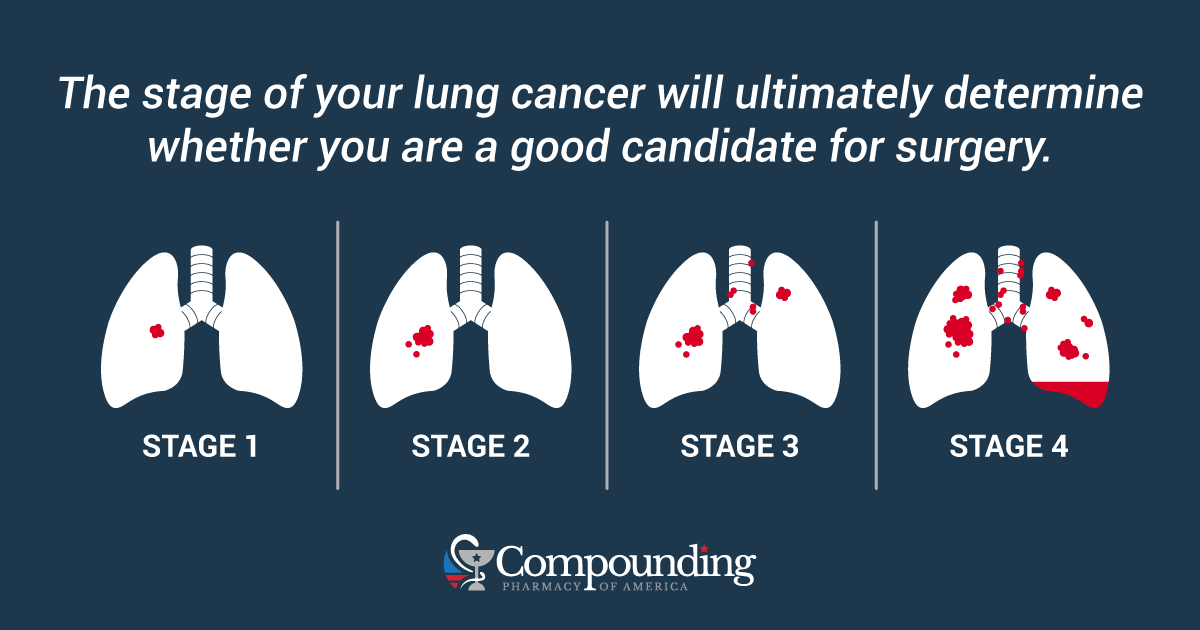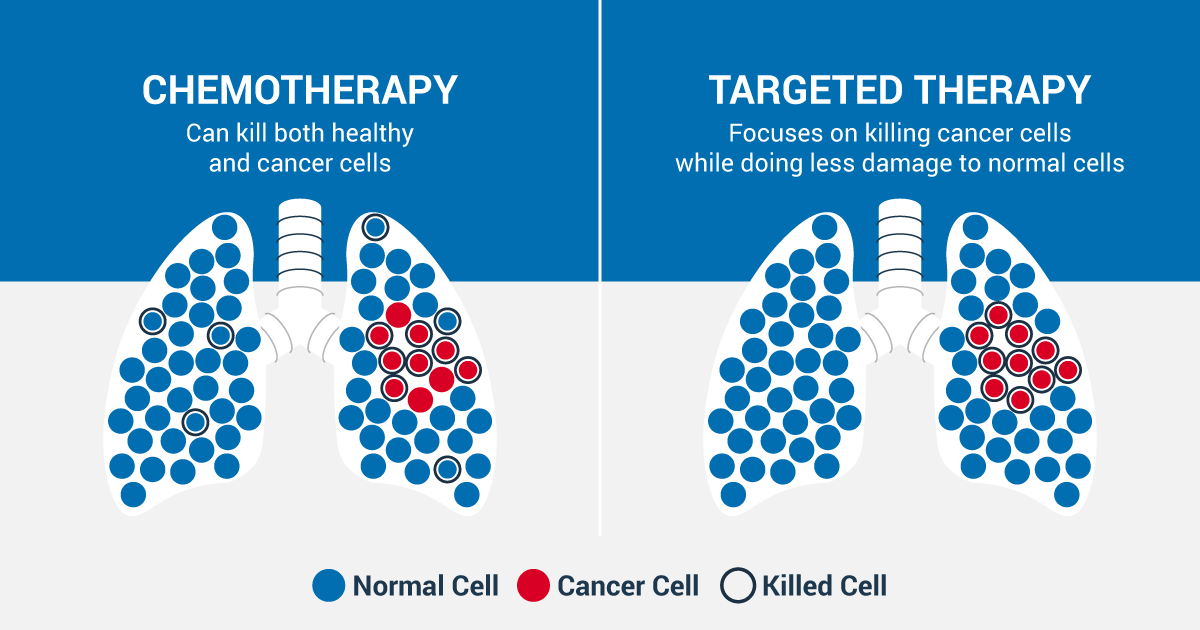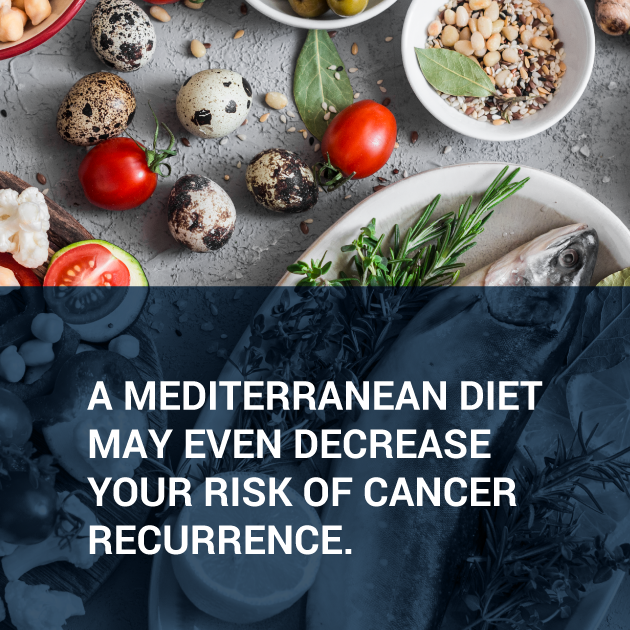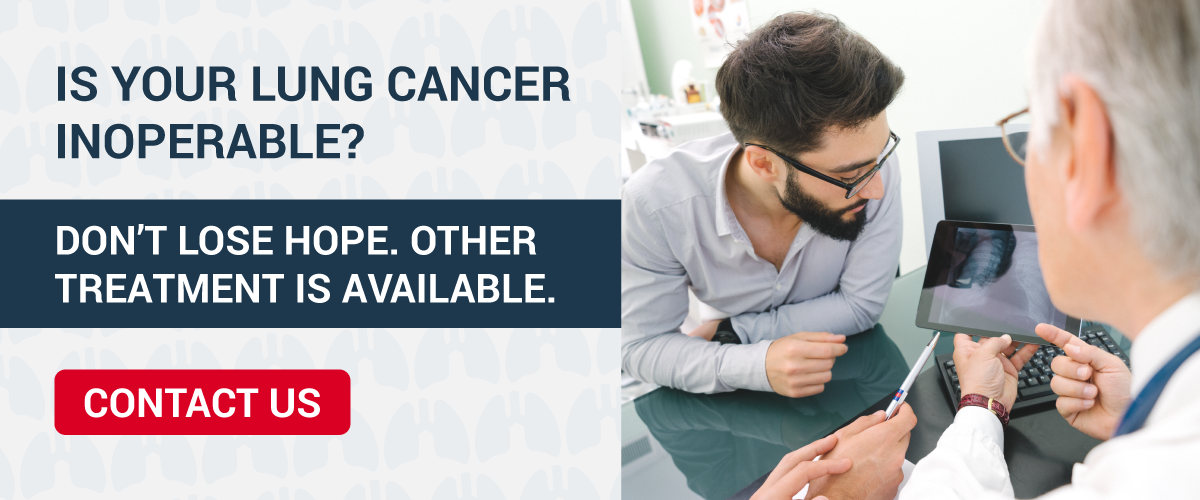
A diagnosis of any type of cancer can be devastating, but learning that your lung cancer is inoperable can make the situation seem hopeless. During the course of testing, diagnosis, and grading of cancer, you will likely encounter terminology you do not understand. Knowing your options and how to proceed following a diagnosis of an inoperable tumor can make you feel more at ease and empowered in your current situation. Compounding Pharmacy of America can help.
What Does ‘Inoperable’ Mean?

One of the first mistakes that people make is conflating the term “inoperable” with others like “incurable,” “untreatable,” or “terminal.” It’s natural to be afraid of or assume the worst when confronting a cancer diagnosis. In truth, however, inoperable means exactly what it says – that surgical removal or resection of the tumor is not possible or not a recommended part of treatment.
Sometimes, a physician may classify a tumor as inoperable because the risks of surgery outweigh those of other treatments. This does not mean, however, that no other treatment options exist. Even when surgery is not recommended or possible, other interventions may shrink the cancer, slow its growth, treat its symptoms, or even put it into remission.
Reasons Why Your Lung Cancer Is Inoperable
Several types of lung cancers exist, so there are a number of possible circumstances that could make your cancer inoperable. Not all people with lung cancer are good candidates for surgery. For example, people with bleeding disorders or other preexisting medical conditions may be at a high risk for complications or death during surgery itself.

Other possible reasons for having an inoperable lung cancer include:
- A diagnosis of a small cell cancer. Small cell lung cancers comprise around 15% of all cases of lung cancer and are aggressive, meaning that surgery is often ineffective. These types of cancers tend to respond better to other interventions, such as chemotherapy and radiation.
- Grading. The stage of your cancer will ultimately determine whether you are a good candidate for surgery. Stage 1 lung cancer, for example, means that your cancer is isolated to the lung. In stage 2 cancer, the disease has spread to nearby lymph nodes. In stage 3a, the cancer has spread to further lymph nodes, but still on the same side of the chest. Stage 3b cancer means that the cancer spread through the lymph nodes on the opposite side of the chest, and Stage 4 cancer indicates that the cancer may have spread to the other lung and other internal organs. Surgery is a possible option for stages 1, 2, and 3a, but is generally not recommended for 3b and 4.
- Location. In some cases, lung cancer may be inoperable because the tumor is too close to other important structures, such as major vessels or even the lungs. In this case, attempting to remove the tumor is too risky.
- Certain medical conditions such as COPD may make surgery too risky compared to the benefits.
Treatment Options for Inoperable Lung Cancers
Learning that your lung cancer is inoperable may be daunting, but it does not mean that other treatments cannot be effective. In fact, in some cases, other treatments may shrink a tumor and make surgery a viable option. Even if you cannot treat the cancer with surgery in the future, you still have treatment options available that could shrink the tumor, manage your symptoms, prevent its spread, or make remission achievable.
Chemotherapy
Chemotherapy is one of the most effective treatments for cancer of all types, including lung cancer. Chemotherapy involves the administration of cancer-fighting drugs, usually over a long period of time and via IV drip. The medication travels to the lungs and works to kill cancer cells and slow or prevent the spread to other tissues. Since chemotherapy also affects healthy tissues, it can have many side effects, but your physician will recommend chemotherapy if he or she thinks that the benefits outweigh the risks.
Newer, more targeted chemotherapies may work to address the mutated cells of lung cancer or disrupt the blood supplies that allow them to grow. The advantage to this type of therapy is that it only works on cancerous cells, leaving healthy cells alone. However, these therapies are in their infancy and may not be available in all areas.

Radiation Therapy
Another evidence-based treatment that can be highly effective in the treatment of lung cancer is radiation. As the name implies, radiation therapy works by aiming targeted waves of radiation at the area of the body where the cancer is located in an effort to eliminate tumors or shrink them. Radiation can remove portions of tumors altogether, making surgery a possibility. In conjunction with chemotherapy, radiation is one of the most common treatment options for cancer.
Immunotherapy
Immunotherapy is still in its infancy, but it has promising implications for the treatment of lung cancer. It is the act of using a patient’s own immune system to ward off cancer and is useful in about 30% of lung cancers. Immunotherapy is currently only approved for non-small cell lung cancers and may not be right for everyone. It is often only FDA-approved for use after trying other interventions such as chemotherapy or radiation, but it may also be used in conjunction with these therapies.
Alternative or Integrated Medicine Options
In some cases, alternative or integrated medicine techniques can be helpful in the treatment of inoperable lung cancers. It is important to realize, however, that alternative medicine treatments are meant to be used in conjunction with other evidence-based treatment—not as a replacement for them.

Alternative and integrative medicine treatment techniques work to address the physical, mental, emotional, and spiritual needs of a person with regard to their medical treatment, care, and diagnoses. Several possible alternative medicine techniques may be helpful during the treatment of lung cancer, such as mind and body medicine (meditation, yoga, and biofeedback), biology-based practices (vitamins, herbs, and special diets), touch-based practices (massage, chiropractic care, and reflexology), energy work (reiki, tai chi, and therapeutic touch), and whole medical systems (Chinese medicine, Ayurveda, and naturopathic medicine).
Holistic Nutrition
 Holistic nutrition is the discipline of addressing your unique nutritional needs and the role your diet plays in the treatment and manifestation of disease. It is impossible to recommend one holistic treatment plan because each is tailored to the individual. In general, however, people with cancer can benefit from a diet full of lean and plant-based protein, a wide variety of fruits and vegetables, whole grains, and healthy fats. The Mediterranean diet may even decrease your risk of cancer recurrence.
Holistic nutrition is the discipline of addressing your unique nutritional needs and the role your diet plays in the treatment and manifestation of disease. It is impossible to recommend one holistic treatment plan because each is tailored to the individual. In general, however, people with cancer can benefit from a diet full of lean and plant-based protein, a wide variety of fruits and vegetables, whole grains, and healthy fats. The Mediterranean diet may even decrease your risk of cancer recurrence.
Meditation
The effects of meditation on health are well documented. Though meditation cannot cure, shrink, or otherwise directly affect cancer, it can improve mental health or well-being, which can reduce the perceived severity of symptoms. There is promising evidence to suggest that meditation can reduce stress, anxiety, depression, and feelings of isolation, which could give people with lung cancer the courage or self-efficacy to continue the fight in light of sometimes grueling treatment options.
Supplementation
Some people turn to nutrient supplementation during cancer treatment in order to bolster overall health. Many different types of lung cancer exist, so it is impossible to illuminate the different possible advantages and disadvantages of supplementation. For example, some evidence suggests that antioxidants can help facilitate healing and prevent certain types of cancers, but they can actually facilitate the growth of other types of cancer. It is essential to review all desired supplementation with your physician and registered dietician.
Alternative therapy can work to address the negative side effects of cancer and the symptoms other treatments can produce. Alternative or integrative medicine can help increase energy, reduce pain, and more when used in conjunction with chemotherapy, radiation, or immunotherapy.
Clinical Trials
During the course of your treatment, it is important to keep an open dialogue with your medical team regarding possible treatment options. Clinical trials can be a viable option for some people, especially when other clinical options have been exhausted. These treatment options are not widely available but present novel or innovative approaches to cancer treatment that may not yet be FDA-approved for widespread use. Your physician can provide further guidance if there is a new procedure, drug, or therapy that may be appropriate for your type of lung cancer.
Not all treatment options will be effective or even viable for your type of cancer. Remember that each person is unique; certain factors will affect the body’s reaction to or viability for a certain treatment plan. Your physician recommends a course of treatment because he or she thinks that it is best based on its benefits and risk profile. Some alternative therapies may be efficacious in helping with the symptoms of cancer—but all should be discussed with the physician in charge of your treatment.
Treating Your Inoperable Lung Cancer
Remember, the fact that your cancer is inoperable does not mean it is untreatable or terminal. You may be able to shrink your tumor, control its symptoms, prevent its spread, or go into remission. Your doctor will be able to inform you about your prognosis and available treatment options based on its grade, stage, location, age, and overall health. It is also important to realize that your prognosis can change over time based on your body’s response to other treatment.

If your doctor tells you your lung cancer is inoperable, don’t lose hope. Other effective treatment options are available. Get all the information you need by contacting us here today or calling (865)243-2488.
Chief Operating Officer, The Compounding Pharmacy of America
Matthew Poteet, Pharm.D. graduated with Honors from Lee University with a Bachelors of Science in Biological Science. After his undergraduate training, he completed the Doctor of Pharmacy program at Mercer University Southern School of Pharmacy, graduating in 2004. Dr. Poteet has spent much of his pharmacy career on staff at two of the most prestigious academic teaching hospitals in the Southeast; Emory University in Atlanta and Vanderbilt University Medical Center in Nashville. At these institutions he received extensive experience and training in sterile products compounding.
He returned home to East Tennessee in 2010, where he has held the position of Pharmacy Director at two sterile products pharmacies in Knoxville. Matthew lives in Knoxville with his wife, Chris. Dr. Poteet is Tennessee’s first Board Certified Anti-Aging Pharmacist by the American Academy of Anti-Aging Medicine.
 Subscribe to Our Newsletter
Subscribe to Our Newsletter


